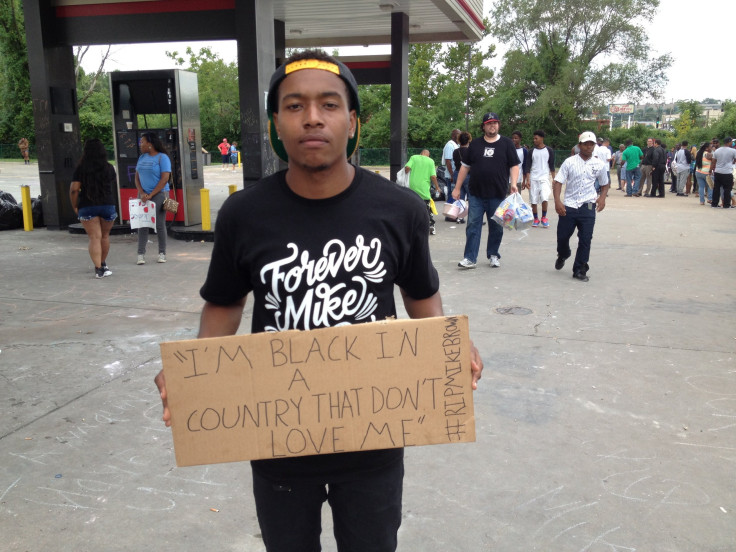Mike Brown Shooting: What It's Like To Grow Up Black In A Town Where 94% Of Cops Are White

FERGUSON, Mo. -- When Gregory Carr was growing up in the suburbs of St. Louis, his father gave him and his four brothers advice about dealing with the police.
“He’d say ‘let me tell you something, when you’re black and you get stopped by the man you just say, yes sir, no sir, and cooperate. Because that man will crack your head.’”
A generation later, Carr, 49, who teaches speech and theater at Harris-Stowe State University in St. Louis, said that he tells his own son the same thing.
“I’m very concerned, he’s only six years younger than Mike Brown,” he said, referring to the shooting of Brown, 18, who was unarmed when he was killed by police Saturday in this St. Louis suburb, an incident that sparked six days of protests, a violent police backlash, sympathetic protests across the country and a national discussion about race and segregation in America.
Brown's death has highlighted racial tensions that have been evolving for generations in this quiet suburban enclave heavily segregated by race. Nearly 70 percent of Ferguson residents are black, but the police force is 94 percent white and the mayor and five out of six City Council members are white. According to the Missouri State Attorney’s General, 86 percent of all people stopped while driving in Ferguson are black.
The numbers are simple, but the realities of growing up black in Ferguson are complicated.
“The trick is to never pull over in a dark area when the police pull you over,” said Eric Latham, 24, who moved to the area when he was 14 years old.
Getting pulled over while driving on main roads at night was so common, Latham would sometimes drive 15 minutes out of the way to avoid police. When he was in high school, Latham said, parties thrown by his white friends never got shut down by police like his were, and his white friends were barely stopped while driving.
“I got pulled over in high school too many times to count, there’s no way to predict it,” he said. “If you’re black and he sees you, and he’s having a bad day, he’s going to stop you.”
But it wasn’t always this way.
Wanda Cross, 52, grew up in the city with her three brothers. It was always tense, but she said she remembers a specific time when it all changed.
“As time went on, it got worse,” she said. “In the '80s it started getting really bad, more people were getting locked up, harassed.”
In 1980, 85 percent of the population was white and 14 percent was black. By 2010, just 29 percent was white, and 69 black, as whites left the neighborhood.
“What can I say? They just don’t like us now,” she said.
Today, she says she worries that her son, in his 20s, faces even more pressure than her brothers did a generation ago.
“I hate to feel that way as a mother, but that’s just the way it is,” she said.
© Copyright IBTimes 2024. All rights reserved.





















